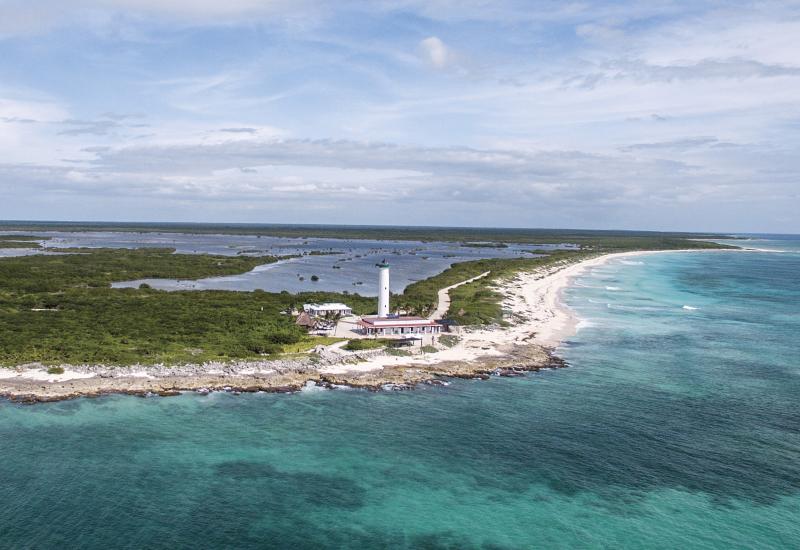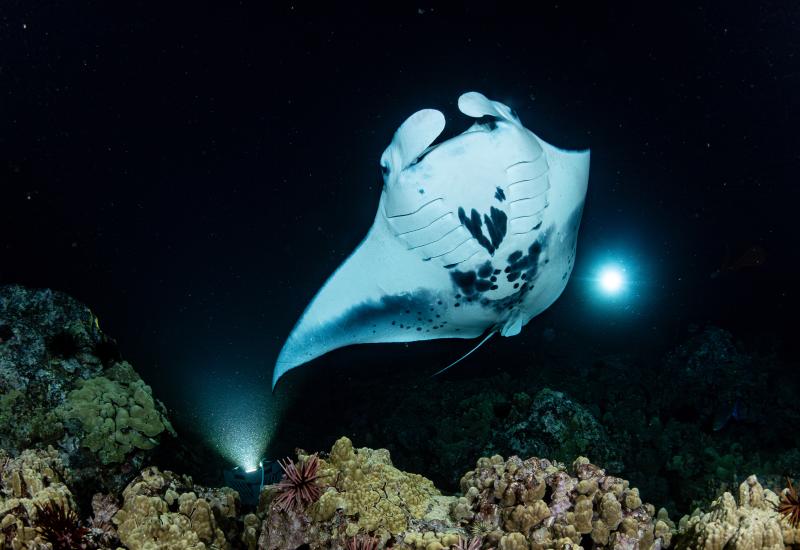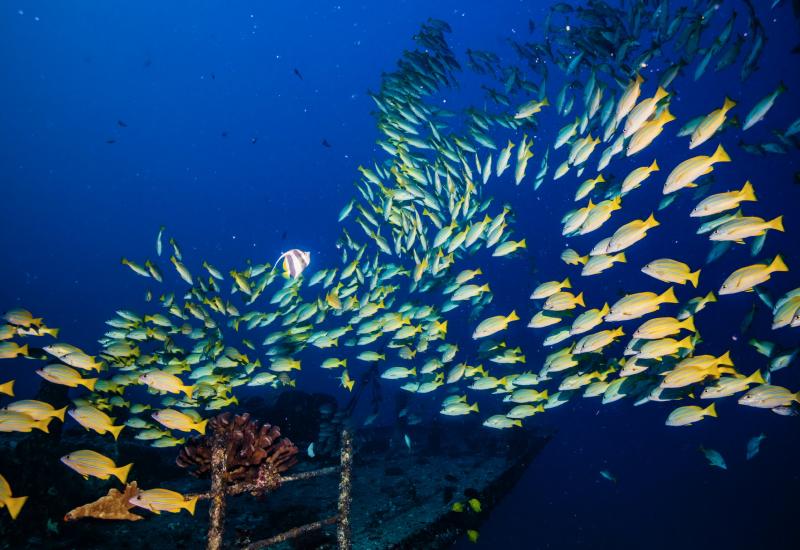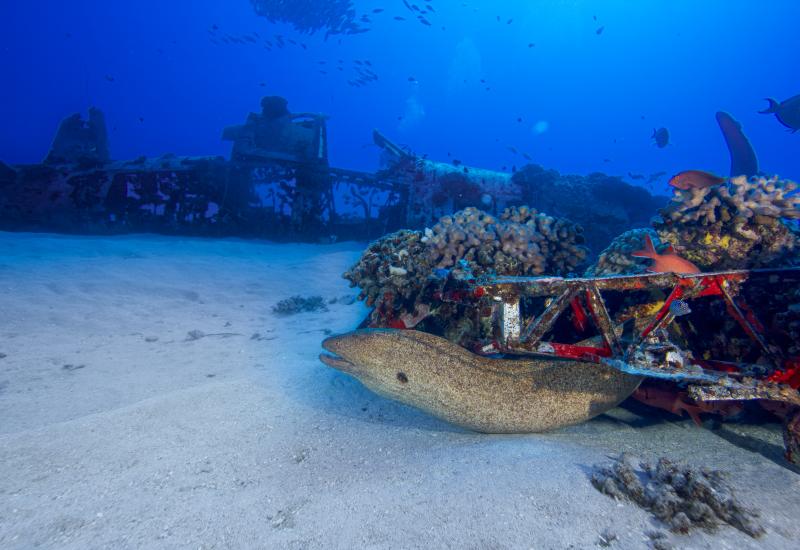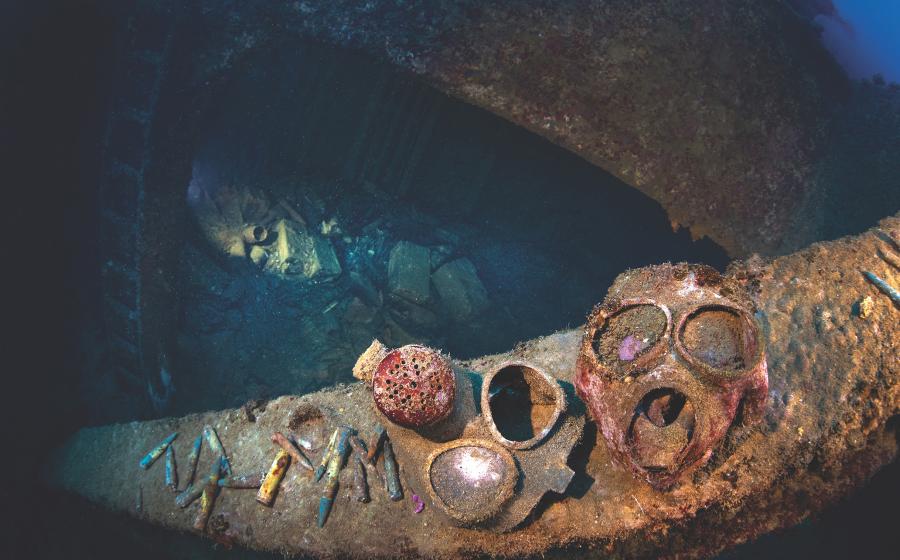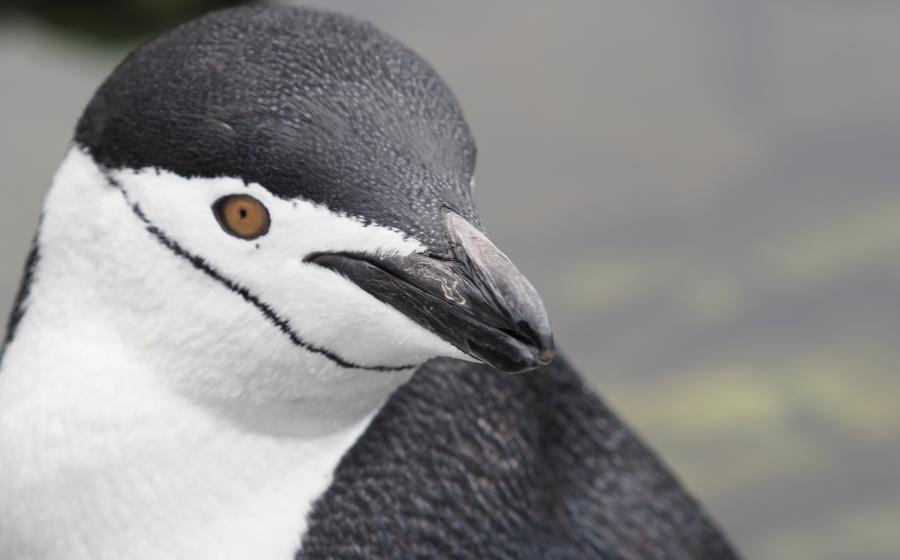Sharks at the Brink: Q&A With Rob Stewart
Q: Do you remember the first time you saw a shark in the water?
A: I loved sharks from the time I could read. I had virtually every book ever published on sharks. When I was a kid, I spent a lot of time in the Caribbean and Florida. I'd catch small sharks and run them back to my parents' jacuzzi and try to keep them alive. In the Caribbean, I had the privilege of spending a lot of time underwater. I probably saw my first shark in the Bahamas when I was 10 years old. As kids, we're told to stay away from sharks. But when I saw one underwater, it was perfect and beautiful and amazing--it all made sense. I knew they didn't want to hurt me.
Q: What inspired you to make the film?
A: I decided I wanted to make a film about sharks. I really thought I was going to make a pretty movie about sharks--an underwater Winged Migration. But then three months into the shoot, we'd been arrested in Costa Rica and I had to decide what to do in this dire situation, so we turned the camera on ourselves and documented what happened. We ended up exposing the connection between the Taiwanese mafia and the Costa Rican shark fin fishery.
Q: How did that happen?
A: To make the movie, I had teamed up with the environmental group Sea Shepherd. We started our journey in Los Angeles. Twelve days into that trip, we found a Costa Rican fishing boat fishing for sharks in Guatemala. Guatemalan authorities wanted Sea Shepherd to bring the boat in so they could arrest them.
Sea Shepherd fired water cannons at the boat to stop them and when we arrived in Costa Rica, the fishermen claimed we were trying to kill them. We were charged with attempted murder. There were a few conservationists in Punta Arenas and one of them told us there was a connection between the Taiwanese mafia and shark fishing in Costa Rica. There's huge illegal shark fishing there, and there's no way the government doesn't know about it. We got chased by the Taiwanese mafia and we had to put barbed wire around the boat and to flee Costa Rican waters with the Costa Rican coast guard chasing us in Zodiacs, trying to arrest us.
Q: How long did it take you to make Sharkwater?
A: Four and half years, filming in 15 different countries. It took so long because we wanted to be sure we got the most beautiful footage of sharks ever. We really want to hit people over the head with the fact that they're beautiful so that they'll look at sharks in a different way.
Q: What did you learn about the fin fishery while you were working on the movie?
A: Demand for shark fin soup is incredibly high right now. The soup comes from mainland China, where it was traditionally a dish for royalty. It was originally discouraged during Communist rule and went out of fashion. It started to come back into fashion in the last quarter century. New fishing methods and the fact that now China is trading with rest of the world have been a huge boost to the fishery.
The word is out that anyone can catch shark fins. They can cut the fins off, hang them out to dry and stay out to sea for months--no refrigeration is necessary to keep the fins. The fins are so small and so valuable.
Sharks are incredibly susceptible to overfishing. They breed only once every few years and they're in really low concentrations to begin with. Worldwide we're at a crossroads when it comes to sharks.
Q: What species are being caught for their fins?
A: A lot of shark fishing happens offshore, so you don't see reef sharks and nurse sharks being caught. But everything else is being caught--oceanic whitetips, blue sharks, makos, everything. You can buy a whale shark fin in Singapore for $40,000. Whale shark, hammerhead and great white fins are much more expensive than the fins of other species, so they're in real danger.
Q: How has the film been received so far?
A: Incredibly well. We had no idea we'd get this kind of response. It's won 12 awards so far, including winning the people's choice award at some film festivals.
Q: What are you hoping people will learn from the movie?
A: I hope there's that fear of sharks is reduced greatly. We need a different relationship with the world. The ocean is the basis of human existence and we need to stop viewing it as a waste dump. I wanted to show that conservation is cool. If we continue to abuse resources like we currently are, the planet won't survive. We're in a precarious situation.
Q: Do you remember the first time you saw a shark in the water?
A: I loved sharks from the time I could read. I had virtually every book ever published on sharks. When I was a kid, I spent a lot of time in the Caribbean and Florida. I'd catch small sharks and run them back to my parents' jacuzzi and try to keep them alive. In the Caribbean, I had the privilege of spending a lot of time underwater. I probably saw my first shark in the Bahamas when I was 10 years old. As kids, we're told to stay away from sharks. But when I saw one underwater, it was perfect and beautiful and amazing--it all made sense. I knew they didn't want to hurt me.
Q: What inspired you to make the film?
A: I decided I wanted to make a film about sharks. I really thought I was going to make a pretty movie about sharks--an underwater Winged Migration. But then three months into the shoot, we'd been arrested in Costa Rica and I had to decide what to do in this dire situation, so we turned the camera on ourselves and documented what happened. We ended up exposing the connection between the Taiwanese mafia and the Costa Rican shark fin fishery.
Q: How did that happen?
A: To make the movie, I had teamed up with the environmental group Sea Shepherd. We started our journey in Los Angeles. Twelve days into that trip, we found a Costa Rican fishing boat fishing for sharks in Guatemala. Guatemalan authorities wanted Sea Shepherd to bring the boat in so they could arrest them.
Sea Shepherd fired water cannons at the boat to stop them and when we arrived in Costa Rica, the fishermen claimed we were trying to kill them. We were charged with attempted murder. There were a few conservationists in Punta Arenas and one of them told us there was a connection between the Taiwanese mafia and shark fishing in Costa Rica. There's huge illegal shark fishing there, and there's no way the government doesn't know about it. We got chased by the Taiwanese mafia and we had to put barbed wire around the boat and to flee Costa Rican waters with the Costa Rican coast guard chasing us in Zodiacs, trying to arrest us.
Q: How long did it take you to make Sharkwater?
A: Four and half years, filming in 15 different countries. It took so long because we wanted to be sure we got the most beautiful footage of sharks ever. We really want to hit people over the head with the fact that they're beautiful so that they'll look at sharks in a different way.
Q: What did you learn about the fin fishery while you were working on the movie?
A: Demand for shark fin soup is incredibly high right now. The soup comes from mainland China, where it was traditionally a dish for royalty. It was originally discouraged during Communist rule and went out of fashion. It started to come back into fashion in the last quarter century. New fishing methods and the fact that now China is trading with rest of the world have been a huge boost to the fishery.
The word is out that anyone can catch shark fins. They can cut the fins off, hang them out to dry and stay out to sea for months--no refrigeration is necessary to keep the fins. The fins are so small and so valuable.
Sharks are incredibly susceptible to overfishing. They breed only once every few years and they're in really low concentrations to begin with. Worldwide we're at a crossroads when it comes to sharks.
Q: What species are being caught for their fins?
A: A lot of shark fishing happens offshore, so you don't see reef sharks and nurse sharks being caught. But everything else is being caught--oceanic whitetips, blue sharks, makos, everything. You can buy a whale shark fin in Singapore for $40,000. Whale shark, hammerhead and great white fins are much more expensive than the fins of other species, so they're in real danger.
Q: How has the film been received so far?
A: Incredibly well. We had no idea we'd get this kind of response. It's won 12 awards so far, including winning the people's choice award at some film festivals.
Q: What are you hoping people will learn from the movie?
A: I hope there's that fear of sharks is reduced greatly. We need a different relationship with the world. The ocean is the basis of human existence and we need to stop viewing it as a waste dump. I wanted to show that conservation is cool. If we continue to abuse resources like we currently are, the planet won't survive. We're in a precarious situation.

